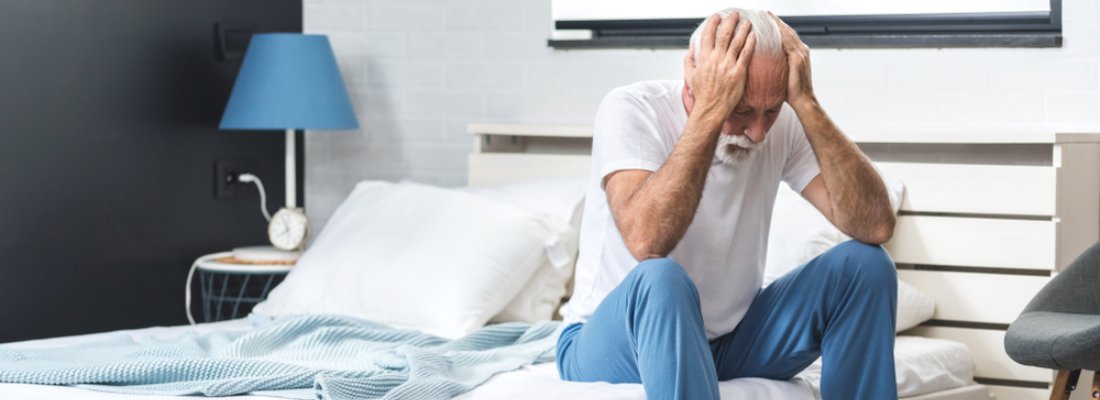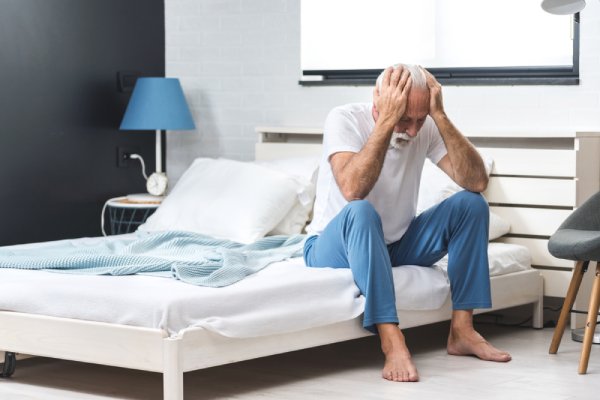
Waking up in the middle of the night with a racing het heart, shortness of breath, and an overwhelming sense of dread is terrifying. However, it is something experienced by many individuals who suffer from nocturnal panic attacks. Furthermore, unlike daytime episodes, these nocturnal panic attacks occur during non-wakeful states, often jolting individuals out of sleep. In addition, these occur without any apparent triggers. Research has uncovered that these nighttime panic attacks are not random; they stem from a complex interplay. Additionally, this interplay may include physiological, psychological, and environmental factors.
Recent studies suggest that disruptions in the body’s autonomic nervous system heightened sensitivity to stress, or even other serious conditions. Moreover, emotional stressors, unresolved anxiety, and even subtle sleep disturbances may exacerbate the likelihood of nighttime panic attacks. The darkness and silence of nighttime can also amplify a person’s awareness of physical sensations, leading to an intensified response to stress. Understanding why panic attacks during sleep happen is crucial for developing effective coping strategies. Keep reading this guide until the very end to restore options for restful sleep and enhance overall well-being!
What Are Panic Attacks During Sleep? A Brief Overview
A nighttime panic attack is a sudden onset of intense fear or discomfort that abruptly wakes an individual from slumber. These episodes can cause a heightened state of panic, accompanied by physical symptoms. In addition, these physical signs may include a racing heart, heavy sweating, and difficulty breathing, often described as gasping for air.
Furthermore, nocturnal panic attacks occur without warning, leaving individuals feeling alarmed and disoriented. Those with panic disorder or a history of recurrent panic attacks are particularly prone to experiencing these unsettling nighttime events. Treatments such as cognitive behavioral therapy (CBT) and prescribed antidepressants have proven effective in managing and reducing the frequency of these episodes.
Can You Have Panic Attacks in Your Sleep and How Common Are Nocturnal Panic Attacks?
Panic attacks during sleep are not uncommon. In the United States, approximately 11% of adults experience at least one panic attack annually. Also, among individuals diagnosed with panic disorder, recurring episodes of intense fear are reported up to 70% more experiencing nighttime panic attacks along with some other signs.
Symptoms of Nocturnal Panic Attack
Panic attacks in sleep share similarities with daytime panic attacks, causing:
- Nausea
- Sweating
- Rapid or pounding heartbeat
- Gasping air
- Intense fear
However, to qualify as a panic attack, at least four of the following 13 symptoms must be present:
- Fear of losing control or “going crazy”
- Fear of imminent death
- Feeling detached or unreal
- Racing or pounding heart
- Trembling or shaking
- Excessive sweating
- Shortness of breath or a feeling of being smothered
- Nausea or stomach discomfort
- Dizziness or lightheadedness
- Choking sensations
- Feeling extremely hot or cold
- Tingling or numbness in the body
- Chest pain or discomfort
While research is ongoing, panic attacks in sleep may more frequently involve sensations of choking compared to daytime episodes. Furthermore, with advancements in technology and digital world, it has become easier to seek virtual consultations, leveraging home sleep study.
Concerned About Your Sleep Problems?
Learn how our in-home sleep study can help diagnose sleep disorders in the comfort of your home.
What Causes Nocturnal Panic Attacks?
1. Disruption in the Autonomic Nervous System
The autonomic nervous system regulates involuntary bodily functions. Additionally, overactivity or imbalances in this system during sleep can lead to a heightened fight-or-flight response. Furthermore, it triggers nocturnal panic attacks. However, sleep disorders like these and others such as insomnia can now be navigated through telehealth appointments.
2. Stress and Anxiety
Daytime stress and unresolved anxiety can carry over into sleep. Hence, persistent worry primes the body for hypervigilance, making it more prone to experiencing nocturnal panic attacks.
3. Sleep Disorders
Conditions such as sleep apnea and restless leg syndrome can increase the risk of nocturnal panic attacks by disrupting deep sleep. In addition, these may cause sudden awakenings, leaving an individual with fragmented sleep.
4. Hormonal Fluctuations
Changes in cortisol levels, particularly during the early morning hours, may contribute to panic attacks at nighttime. Moreover, this stress hormone peaks in the morning, potentially exacerbating feelings of panic.
5. Environmental Triggers
Factors like sleeping in a new place, an overly hot or cold room, or loud noises can disturb sleep. Also, these can increase susceptibility to nighttime panic attacks.
6. Underlying Medical Conditions
Gastroesophageal reflux disease (GERD), cardiovascular issues, or hyperthyroidism can mimic panic attack symptoms. Furthermore, these can heighten the likelihood of such episodes during sleep.
How to Stop Nocturnal Panic Attacks
1. Practice Stress Management
Techniques like meditation, deep breathing, and mindfulness can help reduce anxiety levels. Hence, these are helpful in preventing such panic attacks.
2. Establish a Relaxing Bedtime Routine
Create a calming pre-sleep ritual, such as reading, taking a warm bath, or listening to soothing music. Furthermore, these practices help signal to the body that it’s time to relax.
3. Limit Stimulants
Avoid caffeine, nicotine, and heavy meals close to bedtime, as these can disrupt sleep and trigger panic attacks in sleep.
4. Address Underlying Sleep Disorders
Treating conditions like sleep apnea or insomnia through lifestyle changes, CPAP machines, or medical consultation can significantly reduce these panic attack episodes.
5. Seek Professional Help
Cognitive behavioral therapy (CBT) and medications such as antidepressants or anti-anxiety drugs are proven treatments for managing panic attacks during sleep.
Ready to Take Control of Your Sleep?
Book your appointment today and start your journey toward better sleep health.
The Bird’s Eye View—Reclaim Sleep, Reclaim Healthy, Happy Life!
Panic attacks during sleep can be a distressing and disruptive experience. In addition, these episodes often leave individuals feeling helpless and fatigued. These episodes stem from a combination of physiological, psychological, and environmental factors. Additionally, the triggers may range from stress and hormonal imbalances to underlying medical conditions. By understanding the causes and symptoms of nighttime panic attacks, individuals can take proactive steps to manage and prevent them.
Furthermore, techniques like stress reduction, addressing sleep disorders, and seeking professional therapy play a crucial role in breaking the cycle of fear. While the journey to overcoming nocturnal panic attacks may require time and patience, effective management can lead to improved sleep quality. Lastly, timely interventions may offer reduced anxiety with a better quality of life. It’s time to reclaim your sleep!

